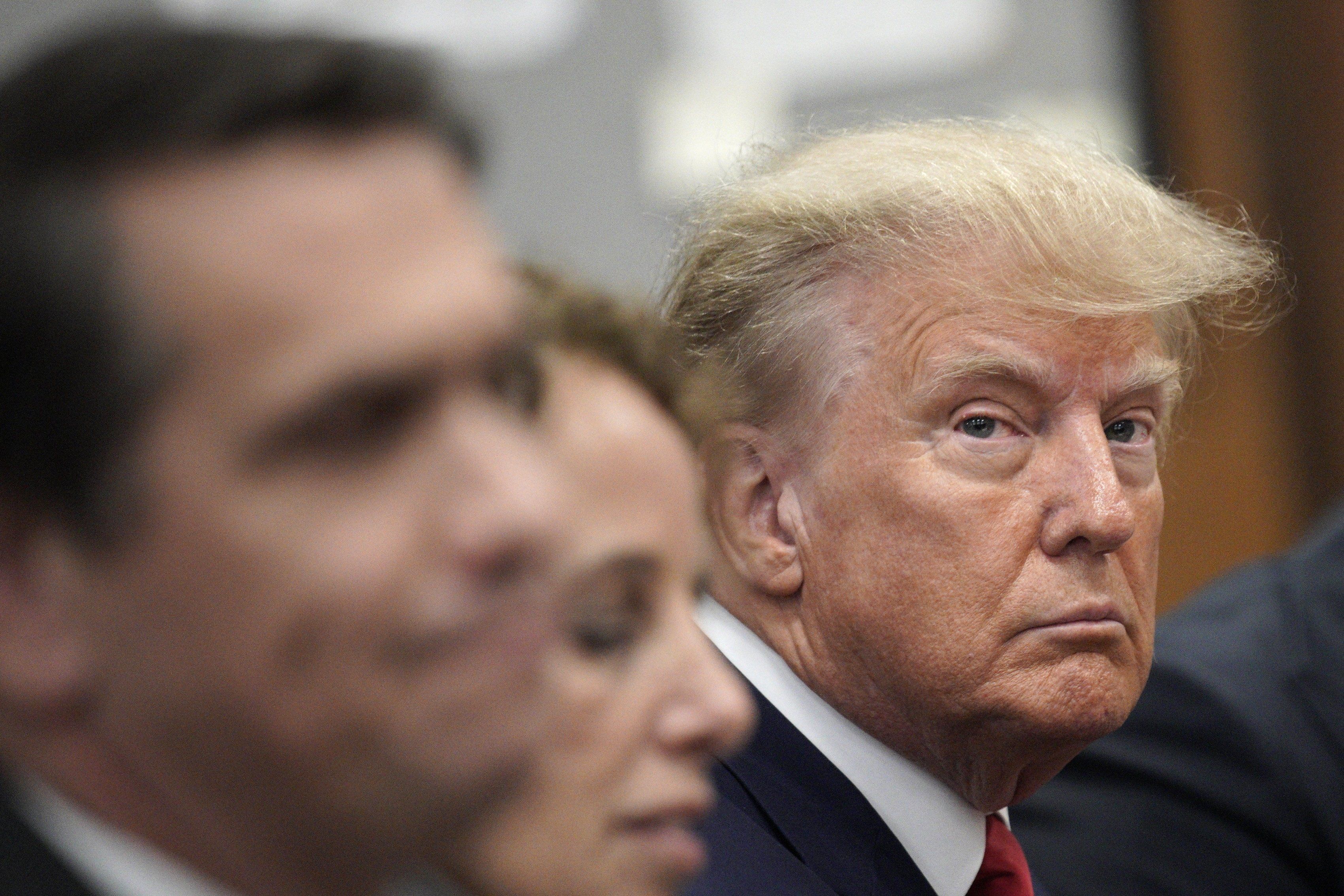You thought you'd never see a US president — sitting or former — get indicted on criminal charges. Think again.
On Tuesday afternoon, a stone-faced former President Donald Trump was arraigned in a Manhattan court on 34 felony counts of business fraud linked to a hush-money payment made to a porn star when he was campaigning for the top job in 2016.
The 45th US commander in chief, who was fingerprinted but spared a mug shot, pleaded not guilty after hearing the charges against him.
And ... that's it. With formalities out of the way, Trump took off on his private jet and returned to Florida. He later addressed supporters from his Mar-a-Lago estate with a trademark grievance-laden speech in which he (surprise!) said he did nothing wrong, trashed the prosecutor and the judge, and framed the case as political interference in his third bid for the White House.
The trial will certainly make political ripples ahead of the 2024 presidential race, in which a now-indicted Trump is running for the third time and is the current frontrunner for the GOP nomination.
In the short term, Trump is exactly where he wants to be: the center of media attention. What’s more, he’s already gotten a bump in his approval rating among Republicans, stealing the polling thunder from his main rival: Florida Gov. Ron DeSantis.
The indictment "is not hurting Trump's position in the GOP. If anything, it's helping, and he’s at the top of the must-beat list," says Eurasia Group senior US analyst Clayton Allen.
But the 17 months left until the Republican Convention are a lifetime in politics. It all depends on how long the trial lasts — and, of course, on the outcome.
Whatever happens in the courtroom, expect the former president to follow his tried-and-tested legal stategy: attack the justice system as unfair to him and delay, delay, delay. And while we await the start of the trial, Trump himself is not due in court again until December.
Meanwhile, as long as he benefits from the continued media spotlight, Trump will be more likely than not to become the Republican nominee.
"Everything that elevates Trump now keeps other hopefuls that might share his lane from entering the race. DeSantis's slide puts him on a weaker footing to potentially challenge Trump down the road," Allen explains. "The stronger Trump looks, the greater the disincentive for others to enter the race."
Yet, counterintuitively, a less competitive field thanks to the trial is also a double-edged sword for Trump. On the one hand, the more rivals he has, the better the odds he'll win the GOP's mostly winner-take-all primaries and cruise to the nomination. Freezing out many challengers "potentially keeps the field a bit narrower for Trump and, for now, helps him maintain his status as the man to beat,” Allen says.
But on the other hand, he adds, a narrow field could make it easier for non-MAGA Republicans to rally around an alternative figure. That candidate would have the best chance of unseating Trump since his party takeover in 2016.
Still, that’s a very big if — and Trump will likely do anything to stop it. The former president might then threaten an independent run if he loses the GOP primary, which would split the Republican vote and massively benefit the guy Trump lost to in 2020: President Joe Biden.
